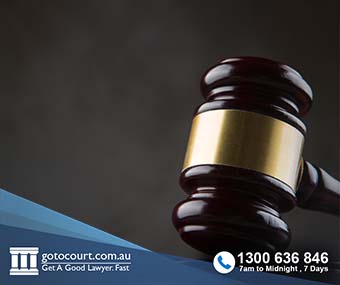Coronial Inquests NT
In the Northern Territory, the Coroner’s Office investigates specific types of reportable deaths and disasters. Under the Coroner’s Act 1993, the Coroner can hold an inquest or public hearing to determine the cause and circumstances of a death that occurs in the Northern Territory. This inquisitorial proceeding is supposed to discover the facts of the case rather than apportion responsibility. This article explains the nature of coronial inquests in the Northern Territory.
What Does The NT Coroner Investigate?
Most deaths in the Northern Territory are not the subject of coronial inquests. The Coroner only holds an inquest when there is a social imperative to investigate the facts. Coroners rely on submissions from police, physicians and members of the public to determine whether an inquest is necessary.
The Coroner (who is a judge of the local court) is responsible for deciding whether to hold a public court hearing (called an inquest). The Coroner will typically hear cases of unexpected deaths or incidents involving death through injury or violence. These reportable deaths are:
- unexpected, violent or unnatural;
- directly or indirectly related to an accident or injury;
- the result of a patient undergoing anaesthetic;
- deaths that occur while a person is in custody or care or immediately afterwards;
- the contributory result of an injury sustained while a person was held in custody; and
- the death of a person whose identity is unknown.
The Coroner can also investigate disasters where there is a substantial danger to public safety.
Reporting A Death
A police officer or medical practitioner will typically notify the coroner of a reportable death, but anyone can make this notification if they believe that the Coroner is unaware of the facts. When the Coroner is notified of a reportable death, they proceed according to the following steps:
- The closest next of kin is informed that the Coroner has been notified of the death;
- If necessary, an autopsy is performed on the body;
- The police investigate the circumstances of the death; and
- The Coroner decides whether to hold an inquest.
Coronial Inquests in the NT
The inquest is a hearing held in a Darwin or Alice Springs local courtroom. The inquest investigates the identity of the deceased, the place, time and cause of death, and any relevant circumstances of the death. The Coroner also considers other matters that impact public health and safety and the administration of justice in the Northern Territory.
The hearing may only be a day long or take several weeks. The Coroner requests the attendance of certain witnesses with a summons to appear. A witness who receives this summons must attend or face arrest. A witness who lives outside the Northern Territory or in a remote area may be able to give their evidence via phone or video conference. Witnesses can also apply to be reimbursed for financial loss (lost wages and travel costs) experienced as a result of attending the hearing.
During the hearing, the Coroner and authorised legal representatives in attendance can ask the witnesses questions to investigate the circumstances of the person’s death. At the conclusion of all witness testimony, each authorised representative can give a submission that is a summary of their own assessment of the evidence.
Lawyers At Coronial Inquests
The Coroner decides whether lawyers representing different parties can attend the inquest. This list typically includes the “counsel assisting the Coroner” who represents the coroner’s office and NT community, and may also include legal representatives of:
- the family of the deceased;
- an organisation that had the care of the deceased before their death;
- an organisation that had custody of the deceased before their death; or
- an organisation or person with a connection to the death.
Except for the counsel assisting the Coroner, any lawyers in attendance at the inquest must be paid privately by their client.
Courtroom Etiquette
A Coroner’s inquest is a court hearing, and all visitors should follow courtroom etiquette. For instance, anyone attending a hearing should show respect to the solemnity of the occasion by bowing to the Coroner while quietly entering and leaving the courtroom, and not disrupt the proceeding (for instance, it is expected that visitors will turn off phones and refrain from talking or eating).
The deceased’s family and other members of the public can attend the inquest and sit behind the lawyers who are party to the hearing. The Coroner can ask anyone to leave the courtroom and implement a ban on some evidence being published online or in newspapers.
Outcomes
At the conclusion of the hearing, the Coroner takes his or her time to write up the decision, known as the “findings”. This can take months, depending on the amount of evidence that the Coroner must consider. When the Coroner is ready to give their decision, they will inform the closest next of kin before giving an oral presentation of their findings in court. The next of kin is given a copy of the decision, and other people can ask for a copy of the findings from the Coroner’s office. The Coroner makes the decision public and publishes the findings of the hearing on the Department of Attorney General and Justice Coroner’s decision page. Once the Coroner issues their findings or indicates Inquest Deemed Unnecessary, a death certificate will be issued, and the findings reported to the Registrar of Births, Deaths and Marriages. A funeral can be arranged as soon as the Coroner agrees to release the body for burial.
The Coroner can give a range of findings and make many types of recommendations. For instance, the Coroner might underscore deficiencies in a prison system after a death in custody, or highlight policy problems at a medical or care facility after a patient dies a reportable death. Evidence at an inquest might suggest that common practices are inherently unsafe or that there should to be changes to statutory or regulatory rules.
Coroners do not decide issues of civil negligence or criminal liability. If the Coroner finds that there are civil or criminal implications, he or she can refer the matter for further investigation. For instance, in a recent finding, Judge Cavanagh found that a missing Northern Territory man likely died as the result of a feud with his neighbours. While the cause of death was not confirmed, and Patrick Moriarty’s body was never found, the Coroner was satisfied that the evidence was sufficient to refer the case to the Commissioner of Police and the Director of Public Prosecutions.
The civil law team at Go To Court Lawyers can provide legal advice about Coronial Inquests in the Northern Territory, or represent your interests during the hearing. Please contact 1300 636 846 for help with this or any other legal matter.








